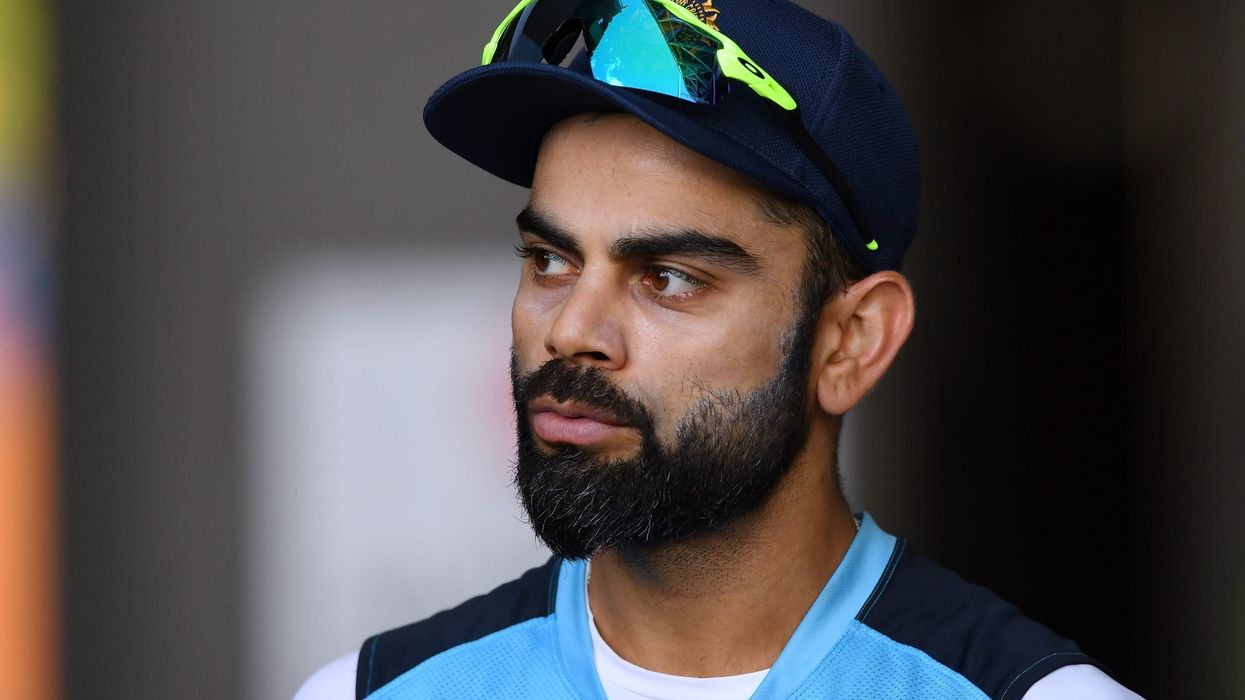India captain Virat Kohli believes more players could follow the example of England all-rounder Ben Stokes unless gaps are created in a congested global fixture schedule.
Stokes is missing the five-Test series against India which started at Trent Bridge on Wednesday while he takes an indefinite break from the game to "prioritise his mental health" amid the strain of playing top-level sport during the coronavirus pandemic.
India go into the campaign having had several weeks rest, barring one tour match, since losing the inaugural World Test Championship final against New Zealand at Southampton in June.
Star batsman Kohli, like Stokes a multi-format international playing for one of the world's most in-demand teams, was glad to get off the treadmill, telling a conference call on Tuesday: "This break was important because you get little time to switch off.
"And also because you recently saw Stokes took a break from cricket and we have been operating in a bubble in the last one-and-a-half-years.
"It is not easy and periodic breaks like these are important in my opinion, to take people away from the game and bring them back refreshed.
"In the current environment it is a stressful job to be a captain and manage a team and on top of that you confine a player to a bubble then things become complicated.
"So I think these periodic breaks are important going ahead for cricket and cricketers, because otherwise it will be difficult to maintain the quality of cricket.
"So like he (Stokes) took a break, many more players will take a break in the future at some stage. They can get tired due to the bubble life.
"How important was the break to us? -- we understand now as we go fresh into this series. We are going in with an exciting mindset and feel we are good to go for the five Tests."
India have won just two of their last 14 Tests in England but Kohli said: "For us, it's all about wanting tough cricket and wanting to win in conditions which are not ours."
Kohli -- without a Test hundred in nearly two years -- is, however, one of several India players who have previously toured England.
"Look, you can have all the experience in the world. It all boils down to execution in crunch moments," he said.
The 32-year-old, who averages over 52 in his 92 Tests, added: "I've loved every moment of it.
"In my opinion, you cannot you cannot play at this level for a long period of time if you're not literally wanting to be in situations which are absolutely opposite of what your comfort zone is."
- 'Scarring' -
Kohli's pacemen may enjoy English conditions as much the hosts' attack.
India certainly got the better of England's batsmen during a 3-1 series win at home to Joe Root's side earlier this year on largely spin-friendly pitches.
"That all depends on the batsman who are walking out, how much scarring they carry with them," Kohli said.
"I can vouch for the fact that we definitely have the ability to bowl them out on a consistent basis."
Meanwhile, Kohli insisted he had no interest in joining Ajit Wadekar (1971), Kapil Dev (1986) and Rahul Dravid (2007) as a series-winning India captain in England just for its own sake.
"We are going to play with the same passion, same commitment, same belief that we play every series with," he said.
"Few series matter more than some others. I don't really believe in these things, because then you are really, picking and choosing what you want to do.
"And that's not being honest to the game, in my opinion."












